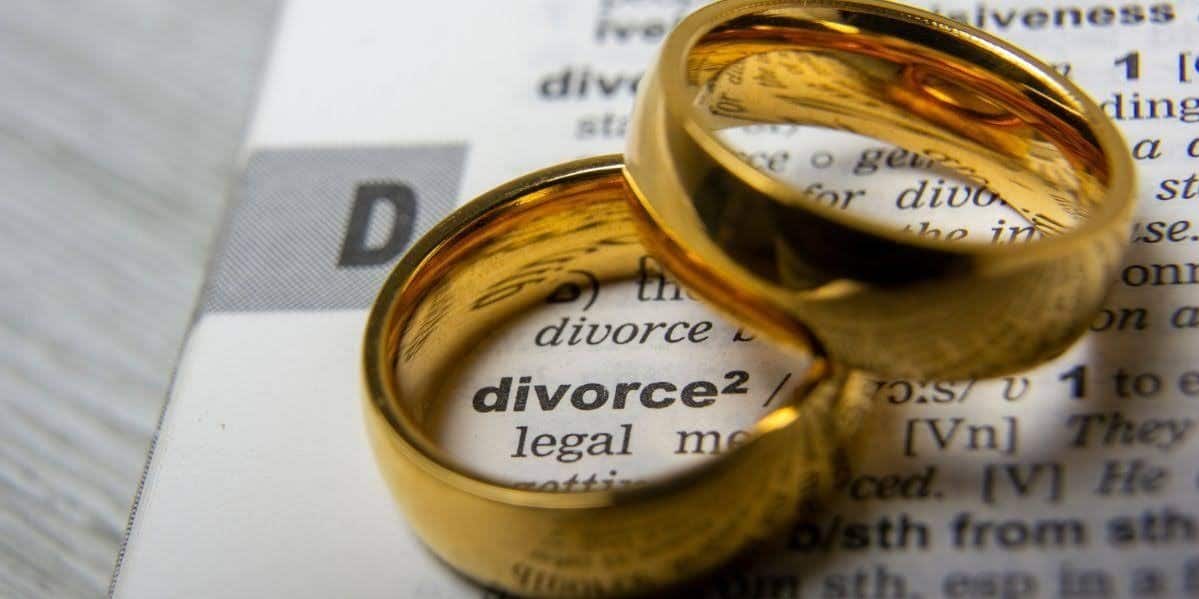Divorce is already tough, but it can get even more complicated when one person doesn’t want to cooperate. If you’re wondering, “How long does a divorce take if one party doesn’t agree?”, the short answer is—it can take a lot longer than a simple, uncontested divorce. In this blog, we’re breaking down what happens when one side disagrees and how long the process can really take, especially in New York.
What’s the Difference Between a Contested and Uncontested Divorce?
If you’re thinking about divorce, it’s important to understand whether your situation is considered contested or uncontested, as this will significantly impact how long the process takes and how stressful it might be. Let’s break down these two types so you know what to expect.
What is an Uncontested Divorce?
An uncontested divorce is when both spouses agree on all the key issues related to ending their marriage. This means they’re on the same page about:
-
Dividing Property and Assets: Who gets the house, car, savings accounts, or any other shared assets?
-
Child Custody and Visitation: Where will the children live? How will time be split between parents?
-
Child Support: How much financial support will one parent provide to help cover the children’s expenses?
-
Spousal Support (Alimony): Will one spouse provide financial support to the other after the divorce?
In an uncontested divorce, because both people agree on everything, there’s no need for a lengthy legal battle. Here’s why this can be a good option:
-
Faster Process: Since there are no disputes, the divorce can be finalized much quicker, often in 3-6 months.
-
Lower Costs: Without the need for court hearings and lawyer negotiations, legal fees are usually much lower.
-
Less Stress: Fewer disagreements mean less emotional strain for everyone involved, including any children.
Common Questions About Uncontested Divorces
Q: Can we still get an uncontested divorce if we disagree at first?
Yes! If you and your spouse can eventually reach an agreement through discussions or mediation, you can still file for an uncontested divorce. It’s about reaching a full agreement before the court finalizes anything.
Q: Do we need a lawyer for an uncontested divorce?
While you can technically handle an uncontested divorce on your own, it’s often a good idea to have a lawyer review the paperwork to avoid mistakes that could delay things.
What is a Contested Divorce?
A contested divorce happens when spouses can’t agree on one or more major issues. This disagreement means the court has to get involved to help make decisions. Here are some common reasons why a divorce might be contested:
-
Child Custody: One parent might want full custody while the other disagrees.
-
Division of Assets: Spouses may not agree on how to split property, bank accounts, or debts.
-
Alimony: One spouse may request financial support, but the other doesn’t want to pay.
In these cases, the divorce process becomes more complicated because it involves:
-
Negotiations: Lawyers on both sides try to reach a settlement. If that doesn’t work, it moves to…
-
Court Hearings: The judge listens to both sides and may schedule multiple hearings to gather evidence.
-
Trial (if needed): If no agreement is reached, a trial might be necessary, where a judge makes the final decisions.
Because of all the back-and-forth involved, contested divorces can take much longer—often 1 to 3 years or even more. They are also much more expensive due to court costs and attorney fees.
Common Questions About Contested Divorces
Q: What if my spouse refuses to respond to the divorce papers?
If your spouse ignores the papers, you can ask the court for a default judgment, which means the divorce can move forward without their input. However, this still takes time because the court needs to ensure your spouse had a fair chance to respond.
Q: Can we avoid going to trial if we don’t agree on everything?
Yes, even in contested cases, you can avoid trial by reaching a settlement through negotiation or mediation. This can save both time and money.
Q: How does the judge decide on things like custody or support?
In contested divorces, the judge’s main concern is what’s best for the children. For financial matters, the judge looks at factors like each spouse’s income, financial needs, and contributions to the marriage.
Key Differences Between Contested and Uncontested Divorces
To summarize, here’s a quick comparison:
Which Type of Divorce is Right for You?
If you and your spouse can agree on the major details, going for an uncontested divorce will save you a lot of time, money, and stress. However, if there are issues you just can’t work out, a contested divorce might be unavoidable. In that case, it’s crucial to have a skilled family law attorney on your side to protect your interests.
How Long Does a Divorce Take if One Party Doesn’t Agree? A Full Breakdown
Divorce can be a stressful and emotional process, but it gets even more complicated if one spouse refuses to cooperate. If you’re wondering, “How long does a divorce take if one party doesn’t agree?”, the answer isn’t simple. It can stretch out for months—or even years. Let’s break down what happens and what you can expect if you’re facing a contested divorce in New York.
What to Expect if Your Spouse Doesn’t Agree to the Divorce
When one spouse contests the divorce, it means they disagree with the terms or don’t want the divorce at all. This can lead to a much longer and more complicated process than if both parties agree. Here’s a step-by-step breakdown of what happens:
1. Filing for Divorce
-
The divorce process starts when one spouse files a divorce petition with the court. This document states that they want to end the marriage and outlines what they’re asking for (like custody, support, or property division).
-
In New York, once the petition is served, the other spouse has:
-
20 days to respond if served within New York.
-
30 days to respond if served outside the state.
-
-
If your spouse ignores the paperwork, you can request a default judgment, but this still involves court approval and can take extra time.
Common Question: What happens if my spouse refuses to respond?
-
If your spouse ignores the divorce papers, you may still be able to proceed. However, it requires additional legal steps to get a judge to move forward without their cooperation.
2. Preliminary Hearings
-
If your spouse contests the divorce, the court will often schedule preliminary hearings to address urgent issues like:
-
Temporary custody or visitation rights
-
Child or spousal support payments
-
Who stays in the family home
-
-
These hearings can take a few weeks to several months to schedule, depending on how busy the court is and whether both sides can agree on temporary arrangements.
Common Question: Do we have to attend all hearings in person?
-
In most cases, yes. However, some preliminary hearings may be conducted virtually, depending on the court’s rules and the complexity of the case.
3. Discovery Phase
-
This phase is crucial in a contested divorce. It’s when both sides exchange information, including:
-
Financial documents (like tax returns, bank statements, and pay stubs)
-
Evidence related to assets and debts
-
Any documents relevant to child custody arrangements
-
-
If one party is uncooperative or drags their feet, the discovery phase can last 3-6 months or longer. Sometimes, lawyers may need to request court orders to get the necessary information.
Common Question: What if my spouse hides assets?
-
Your attorney can file motions to uncover hidden assets. Courts take financial dishonesty seriously, and hiding assets can lead to penalties.
4. Negotiations and Mediation
-
Before going to trial, courts often encourage couples to try mediation to resolve disputes. A neutral mediator helps both sides reach an agreement on things like:
-
How to divide property
-
Child custody and visitation schedules
-
Support payments
-
-
Mediation can save time and money, but it only works if both parties are willing to compromise. If one spouse remains stubborn, this process can add several more months to the divorce timeline.
Common Question: Is mediation required in New York?
-
It’s not mandatory, but judges often suggest it. If both sides can agree during mediation, it can speed up the process significantly.
5. Going to Trial
-
If mediation doesn’t work, your divorce moves to trial. This is where a judge decides on all the issues, including:
-
Division of assets
-
Child custody and support
-
Alimony or spousal support
-
-
Getting a court date can take 6-12 months or more, depending on how busy the court is. Once the trial starts, it might take a few days, but the judge’s decision could take weeks or even months to finalize.
Common Question: How long does the trial itself last?
-
Trials can last anywhere from a single day to several weeks, depending on the complexity of the issues and the number of witnesses.
Total Timeline for a Contested Divorce in NY
When one spouse doesn’t agree, a contested divorce can take anywhere from 1 to 3 years or even longer in complicated cases. The timeline depends on several factors, including how willing each party is to negotiate and how overloaded the court system is.
How Long Does an Uncontested Divorce Take in NY?
If both parties agree on everything, an uncontested divorce is much simpler and faster. But, how long does an uncontested divorce take in NY? Here’s how it usually works:
1. Filing and Serving the Papers
-
One spouse files the divorce paperwork, and the other agrees to the terms. Once the papers are served, this part can move quickly if everyone’s on the same page.
2. Finalizing the Agreement
-
After filing the agreement with the court, there’s usually a waiting period of 30-60 days for processing. During this time, the court reviews the documents to make sure everything is in order.
3. Getting the Divorce Decree
-
If everything is correct and there are no issues, an uncontested divorce in New York can be finalized in as little as 3-6 months.
Common Question: Can we speed up the process?
-
Yes, you can speed things up by making sure all your paperwork is accurate and by responding to any court requests quickly. Some courts also offer expedited processing for simple cases.
Tips for Speeding Up the Divorce Process
If you want to make the process as smooth and quick as possible, here are some tips:
-
Hire an Experienced Lawyer: Working with a family law professional, like the team at Krasner Law, helps you feel at ease that you’re handling everything correctly and can prevent unnecessary delays.
-
Be Open to Mediation: Even if things are tense, trying mediation can help resolve disputes without a lengthy court battle.
-
Get Your Documents Ready Early: Gather all your financial documents, custody arrangements, and agreements beforehand. This can speed up the discovery phase.
-
Be Willing to Compromise: Standing your ground on major issues is important, but being flexible on minor details can save you months of court time.
What Can Slow Down a Divorce When One Side Doesn’t Agree?
Several things can make a contested divorce take longer:
-
Child Custody Disagreements: If both sides can’t agree on custody, the court might require evaluations, which can take months.
-
Financial Disputes: Arguments over dividing property or support payments can lead to long negotiations.
-
Uncooperative Behavior: If one person stalls, ignores court orders, or refuses to provide information, the process will drag on.
Sometimes, if one spouse is completely unresponsive, the other can ask the court for a default judgment. But even that takes time to get approved.
How to Speed Up a Contested Divorce
While contested divorces can be lengthy, here are some ways to make it go faster:
-
Get a Good Family Lawyer
-
Working with an experienced attorney like those at Krasner Law can help you move through the process smoothly. They’ll handle the paperwork and make sure everything is done right.
-
-
Try Mediation
-
Even if things are tense, mediation can help both sides come to an agreement without a trial. It’s worth a shot to avoid dragging things out.
-
-
Be Prepared
-
Having all your financial documents and other paperwork ready can speed things up, especially during the discovery phase.
-
-
Be Willing to Compromise
-
Being flexible on smaller issues can save a lot of time and reduce stress.
-
Final Thoughts: Getting Through a Difficult Divorce
If you’re facing a tough divorce where your spouse won’t agree, knowing the timeline can help you feel more prepared. Working with a law firm like Krasner Law can make a big difference. They’ll guide you through every step, so you don’t feel lost or overwhelmed.
Contact us today to schedule a consultation and see how we can help you navigate this challenging process. Our team is here to support you every step of the way.








